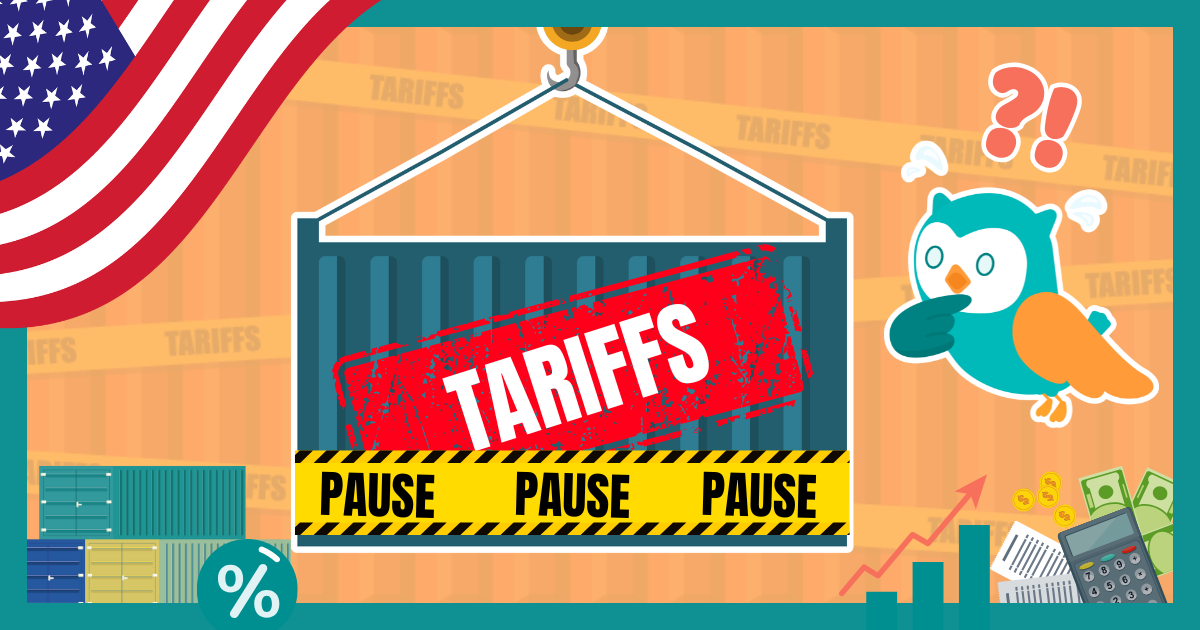Note: It was announced in November 2023 that MoneyOwl will be acquired by Temasek Trust to serve communities under a re-purposed model, and will move away from direct sale of financial products. The article is retained with original information relevant as at the date of the article only, and any mention of products or promotions is retained for reference purposes only.
______________
A highlight of the Keep Calm and Beat Inflation seminar held earlier this month was the fireside chat session, where speakers answered questions from the floor on the investing approaches everyday Singaporeans could take to beat inflation and grow their money.
MoneyOwl’s CEO and Chief Investment Officer Chuin Ting Weber, Dr Wei Dai of Dimensional Fund Advisers and Dawn Cher of SG Budget Babe shared their insights on topics ranging from investment philosophy to finding ‘alpha’ in fund performance and the steps our audience could take to achieve their best possible lives despite inflation’s drag.

If you’ve missed it, not to worry. We’ll publish more of our event materials shortly, so watch our social channels. In the meanwhile, here is the line-up of hot-button questions raised by our audience.
Q: How is Dimensional Fund Advisors (DFA) able to charge low fees when other hedge funds’ charges are so much higher?
Dr Wei Dai:
Thank you for noticing how competitive we are on cost. For hedge funds, you need to understand where the costs are from. As the hedge funds try to find mispricing in the market or time the market, they hire an army of analysts with supercomputers to try to seek information that has not been embedded into the market prices. That’s very competitive and costly, and we haven’t seen evidence of higher returns consistently after all these fees and costs.
It comes down to the power of the market – if you think about all the analysts out there making their trades, they are embedding their information into current market prices. So, if we use the collective wisdom embedded in market prices, all these analysts are working for us, just not on our payroll.
As a result, our value-add comes from systematic research and finding systematic drivers of expected returns that we can implement in a scalable and cost-effective manner, allowing us to charge low fees. Moreover, as a big asset manager, Dimensional Fund Advisors also enjoys economies of scale, enabling retail investors like yourselves to enjoy institutional prices.
Chuin Ting Weber:
One thing that hedge funds promise is the ‘alpha’ – that they are better, faster and smarter. Alpha is defined as having excess returns over the market – and this pursuit of alpha in the markets has been elusive. I think that there are a few different types of alpha there.
The first is the traditional alpha – being smarter, better and faster than other people, and that’s what hedge funds claim. However, we see that many traditional funds don’t manage to achieve it.
A lot of the alpha hedge funds thought they achieved happened pre-global financial crisis is termed as the financial services alpha.
Financial services alpha happens when you overcome rigidities or costs, for example, with securities lending or leverage and being able to fractionalise or get trading lines. But a lot of what hedge funds are doing is based on leverage, and they were able to get a lot of leverage to go long or short on the market.
After the global financial crisis, when leverage was tightened, we saw many hedge funds underperform in their 60 /40 portfolios. I think we need to know what’s underlying those returns and how sustainable those returns are when people have the hubris to claim something. I don’t know the rate of hedge funds closing, but I suspect it’s quite high.
Dawn Cher:
As a consumer, I find it helpful to read the websites of hedge funds or fund managers and look beyond the marketed information to understand what underpins their strategy and how that execution looked from different periods. That way, you get a better sense of fees and what’s worth paying for.
Q: Why should I invest in Dimensional Funds instead of S&P 500?
Dr Wei Dai:
The S&P 500 and other market indices are like a proxy for what the market and index fund returns. There are two things to note for such indices.
Firstly, what is your objective? If you invest in S&P 500 or another world equity fund, your goal would be to match the market returns minus the fees and costs. Because of the fees, you may end up getting below-market returns. For Dimensional Fund Advisors, our objective is to outperform the market, and we’re doing so in a systematic, risk-controlled and cost-effective manner. So that’s our objective, and our rigorous research drives the drivers of expected returns and premiums that we pursue.
The second thing to consider is the implementation. The index funds may rebalance their portfolio once or a few times a year, so they do portfolio maintenance a few times a year. As an investor, you’re buying into all the stocks that go into the index and selling any stocks out of the index, just like everyone does when they track the same index. Similar to buying roses on Valentine’s Day, you become a price taker and probably need to pay a higher cost.
On the other hand, at DFA, we make incremental changes daily to keep that consistent exposure on higher expected returns. This means that we have the flexibility to get the execution done as cheaply as possible. So, if you are going with the index route, it’s likely that you’re leaving money on the table.
Q: What is the difference between investing in the MSCI World Index and the Dimensional Funds when the returns only mirror MSCI?
Dr Wei Dai:
To add to our previous discussion, the S&P 500 tracks the US’s largest stocks, so they are an important part of the market. However, the US market only comprises about 40 to 50% of the world’s market, so there are more opportunities that you can invest in, such as smaller-cap companies and non-US stocks.
To diversify globally, you may invest in global portfolios with thousands of stocks, not just the 500 biggest ones. With the MSCI World Index, you get access to more stocks, but similarly, you’re settling for market returns less fees and expenses. Whereas for DFA, our starting point is the market, but we try to get more.
Of course, the excess returns we are pursuing don’t happen every day or month, and there will be volatility and bumpiness along the way to get those long-term averages. So that’s why investors must evaluate how much they want to focus on those higher expected returns. We have some portfolios with a moderate tilt towards those higher returns, which could be quite suitable as a core allocation in clients’ portfolios.
Chuin Ting Weber:
One question to ask ourselves is, does the US market always outperform the global markets? In the last ten years, they have! I noticed some advisers with a world allocation; they decided to overweight the US so they could project ten-plus percent based on historical returns. In the same way, Asia outperformed for the longest time; then it became the US. So the jury is out – it really depends on the time frame you’re looking at when it comes to global versus US performance. Therefore, please be careful when you look at historical returns because of the cherry-picking involved.
The MSCI World focuses on developed markets, of which the US takes up about 60%. The Dimensional portfolios we use on the equity side follow the MSCI All Country World Index allocation, which is 88% World, and 12% Emerging Markets. There’s no general rule that the US will consistently outperform and that the S&P 500 will always outperform. In fact, the last two years have shown that it has gone up and down.
The S&P 500 is not an investable asset class. As an investor, you need to find a fund that tracks the S&P 500. So how does the everyday investor access the S&P 500 in Singapore? One possible and probably more affordable option is to buy it off the US Exchange Trade Fund (ETF). Although, you’ll need to be aware that there are withholding taxes, forex costs and other hidden costs when purchasing overseas ETFs. Another option which we don’t recommend is via a synthetic ETF. Having a synthetic ETF on the STI means that they don’t physically buy those stocks and that those stocks are synthetically replicated. There’s also an Infinity US S&P 500 fund that acts as a wrapper, but its total expense ratio at 40 basis points is relatively high.
Q: Do you foresee a recession occurring in the next six months?
Dr Wei Dai:
Nobody has a crystal ball – you don’t need to know for investment purposes. It’s not because the micro-economy doesn’t impact the market; it does. The potential impact of recession or the probability of it happening in the next three to six months and its potential impact on the real economy and company cashflows are already embedded into today’s market prices.
Suppose, for example, a downturn in the market is due to a potential economic slowdown. In that case, the market will not wait for the actual profits of the companies to become lower and then reflect that in today’s market prices. These forward-looking expectations are already built in, so knowing when a recession will happen or whether we are already in a recession will not help you make better investment decisions. That’s why when you investigate the historical data and look at stock returns one year or 24 months after the onset of a recession, you see a majority of positive returns. So, although you should care about what’s going on in the economy to be an informed citizen, don’t use that to inform your portfolio decisions.
Chiun Ting Weber:
I think there’s a good chance we need to look at our finances as it’s not going to be comfortable, and we are already feeling it. So, if you want to say whether there’s a heightened risk of recession now compared to how you felt a year ago, the answer is it’s probably yes, but what does it mean for us?
What it means is that we have higher prices and greater job uncertainty. So use that fear or uncertainty not to change your investment strategy in the long term, but address your financial planning needs in the short term. You have to continue pulling your weight at work, restructure your expenses and build your emergency funds because these are practical ways that you can respond to remain resilient through a recession.
CPF can also be your buffer for paying mortgages when mortgage rates increase or when cash becomes precious. So, look after your cash, especially if you think you are at risk, but use macro data and information to make short-term financial planning adjustments and not change your long-term investment strategy.
In summary, I don’t know if there will be a recession. I think it won’t be comfortable for us because of inflation, and if there’s job uncertainty, you need to prepare yourself by looking after your financial health.
Disclaimer:
While every reasonable care is taken to ensure the accuracy of information provided, no responsibility can be accepted for any loss or inconvenience caused by any error or omission. The information and opinions expressed herein are made in good faith and are based on sources believed to be reliable but no representation or warranty, express or implied, is made as to their accuracy, completeness or correctness. Expressions of opinions or estimates should neither be relied upon nor used in any way as indication of the future performance of any financial products, as prices of assets and currencies may go down as well as up. All investments carry risk. Past performance should not be taken as indication of future performance. The author and publisher shall have no liability for any loss or expense whatsoever relating to investment decisions made by the reader.




